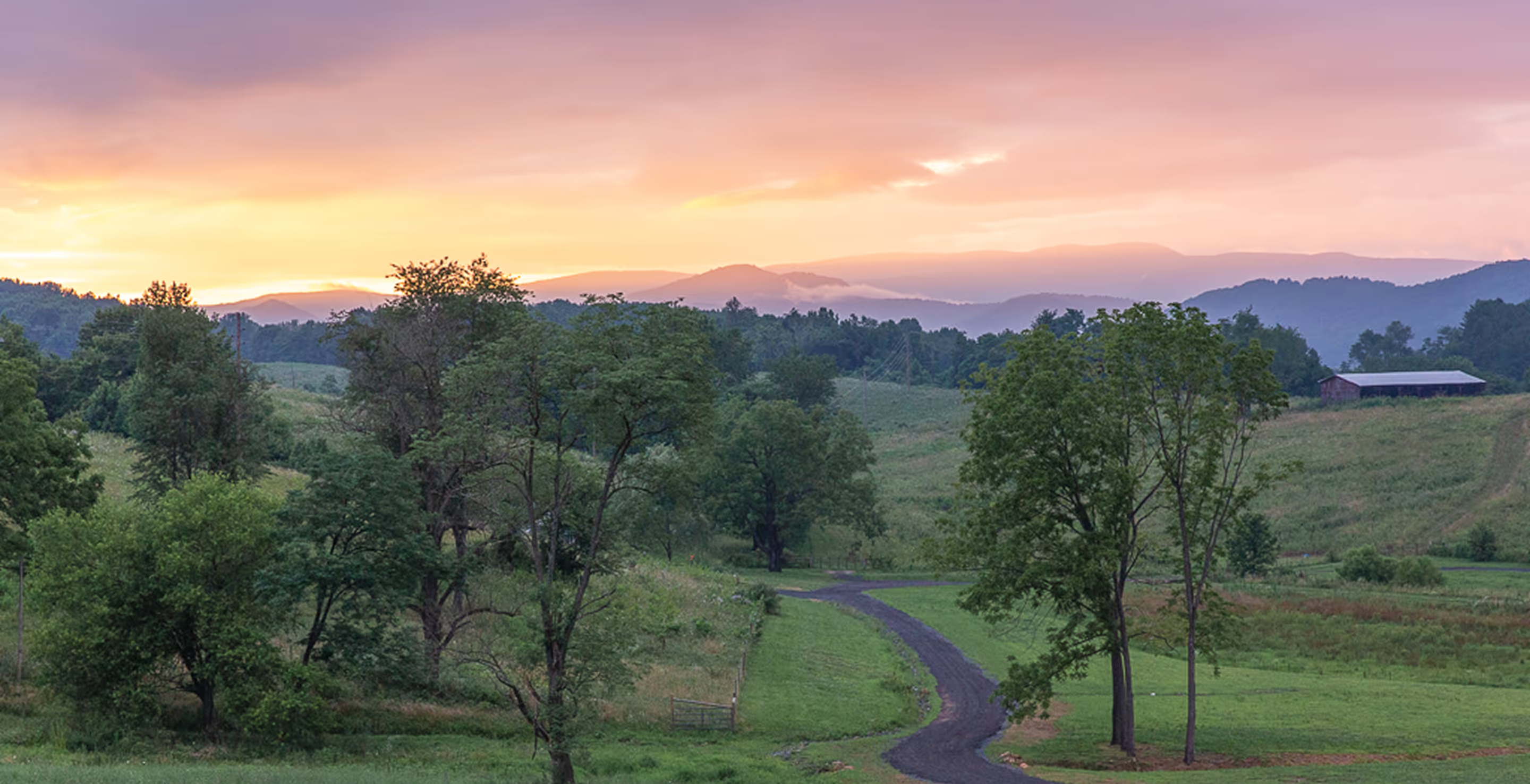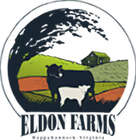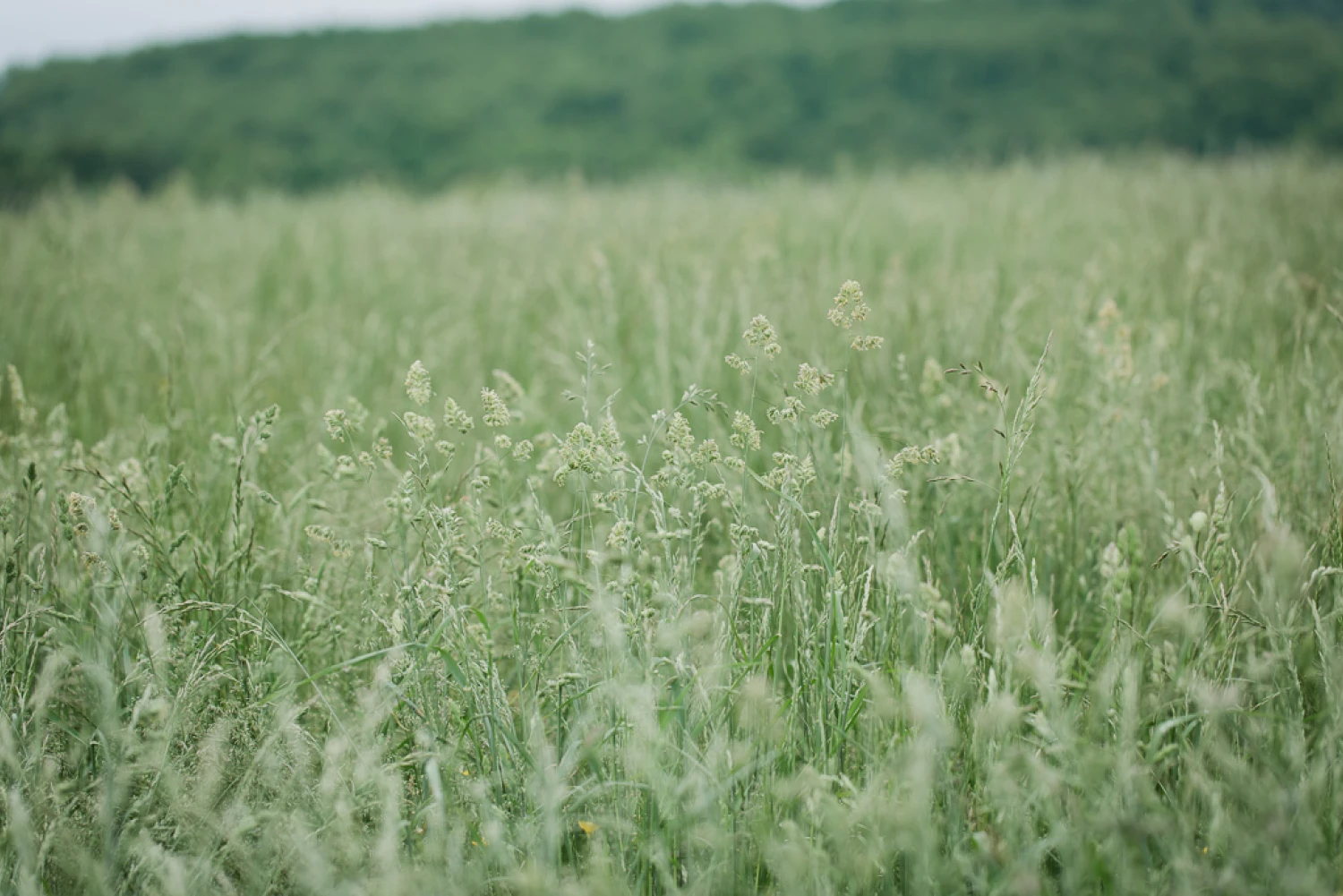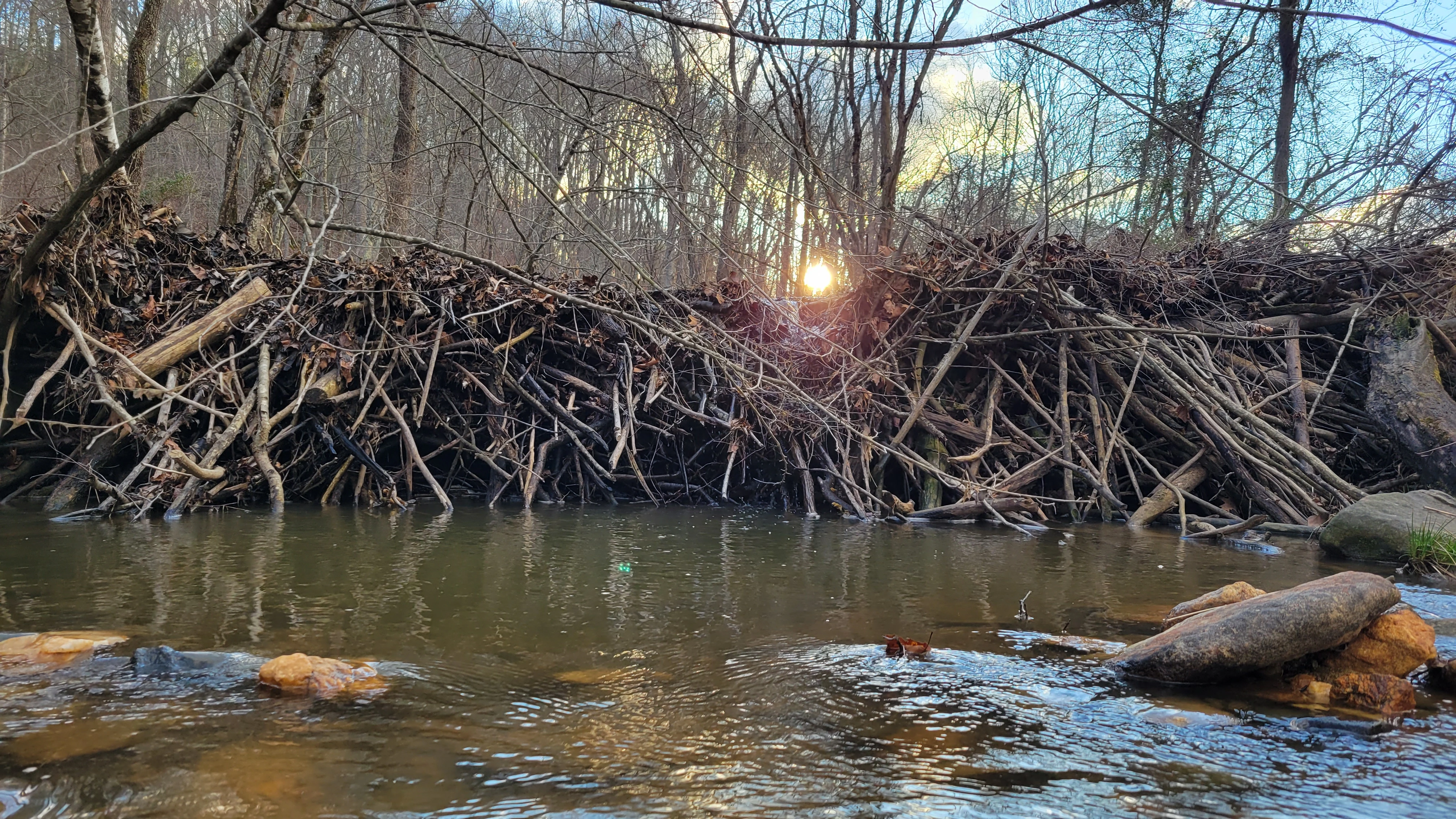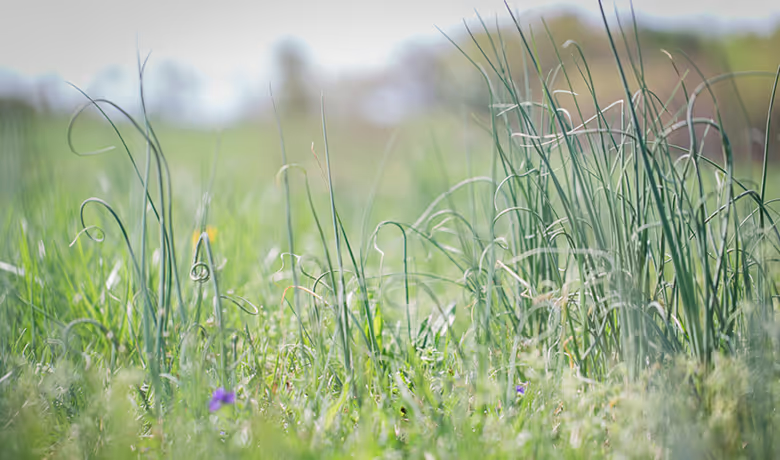Cultivating Common Ground in Rappahannock
At Eldon Farms, we’re working toward a future where productive farms, healthy ecosystems, and strong communities don’t just coexist—they support one another.
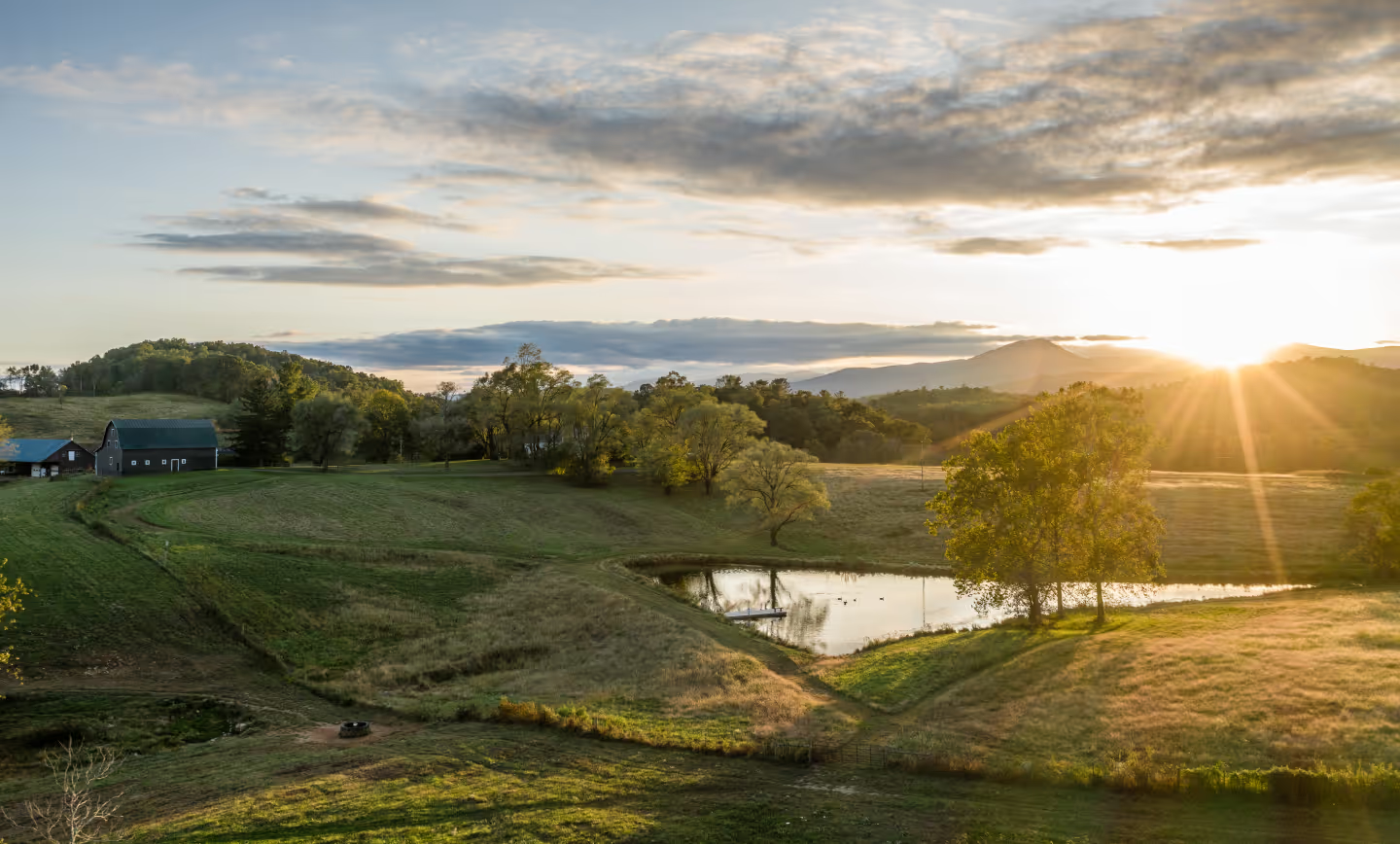
A Landscape That Works for Everyone
We constantly ask "How can we do this smarter?" We test, measure, and adapt practices for better results.
We know profitability and ecological responsibility aren't opposites – they're partners. We find ways for them to work together.
We believe caring for land requires active, thoughtful management, not passive preservation.
We seek common ground between farmers, conservationists, landowners, and the community, knowing collaboration creates the best outcomes.
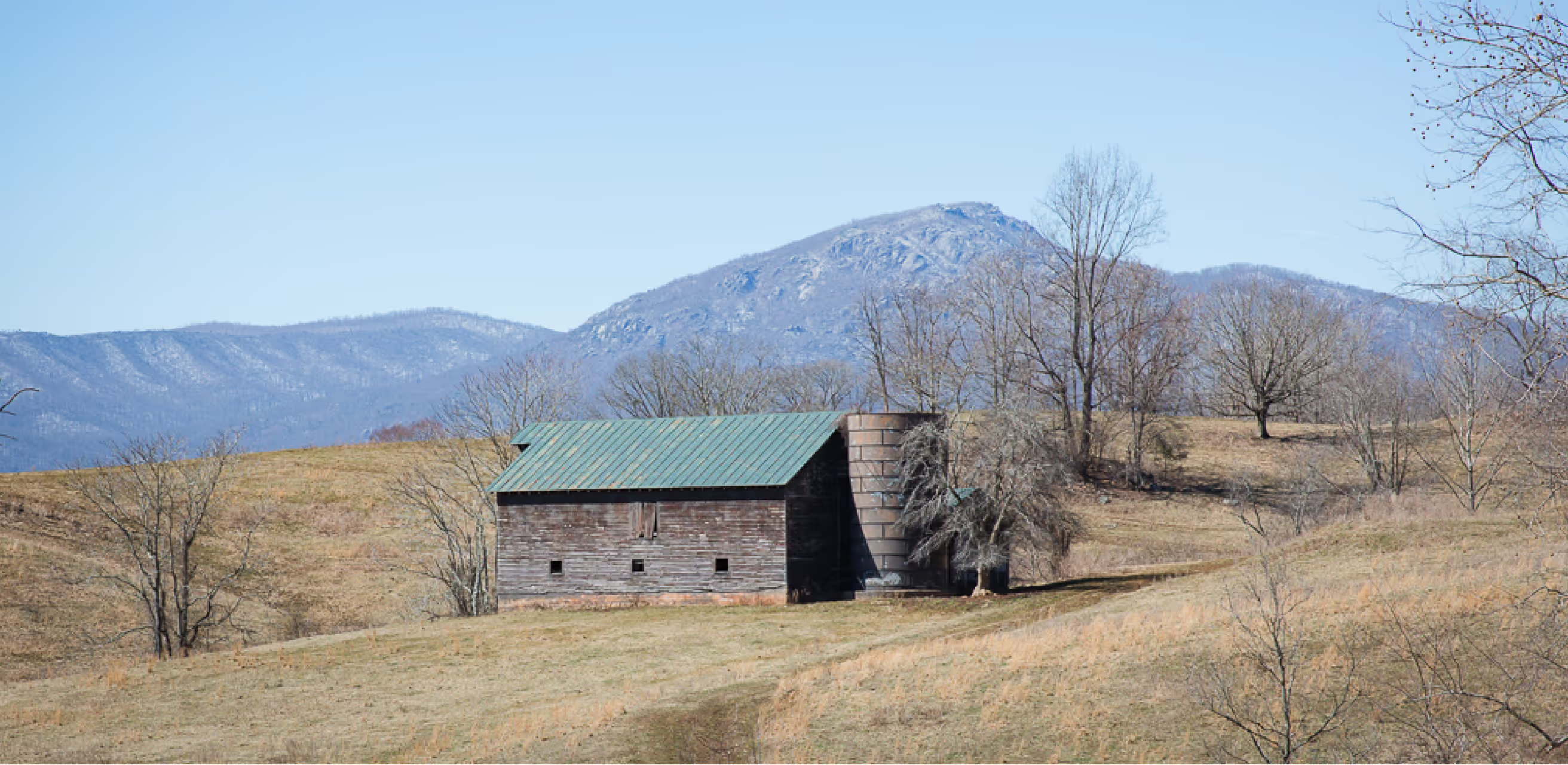
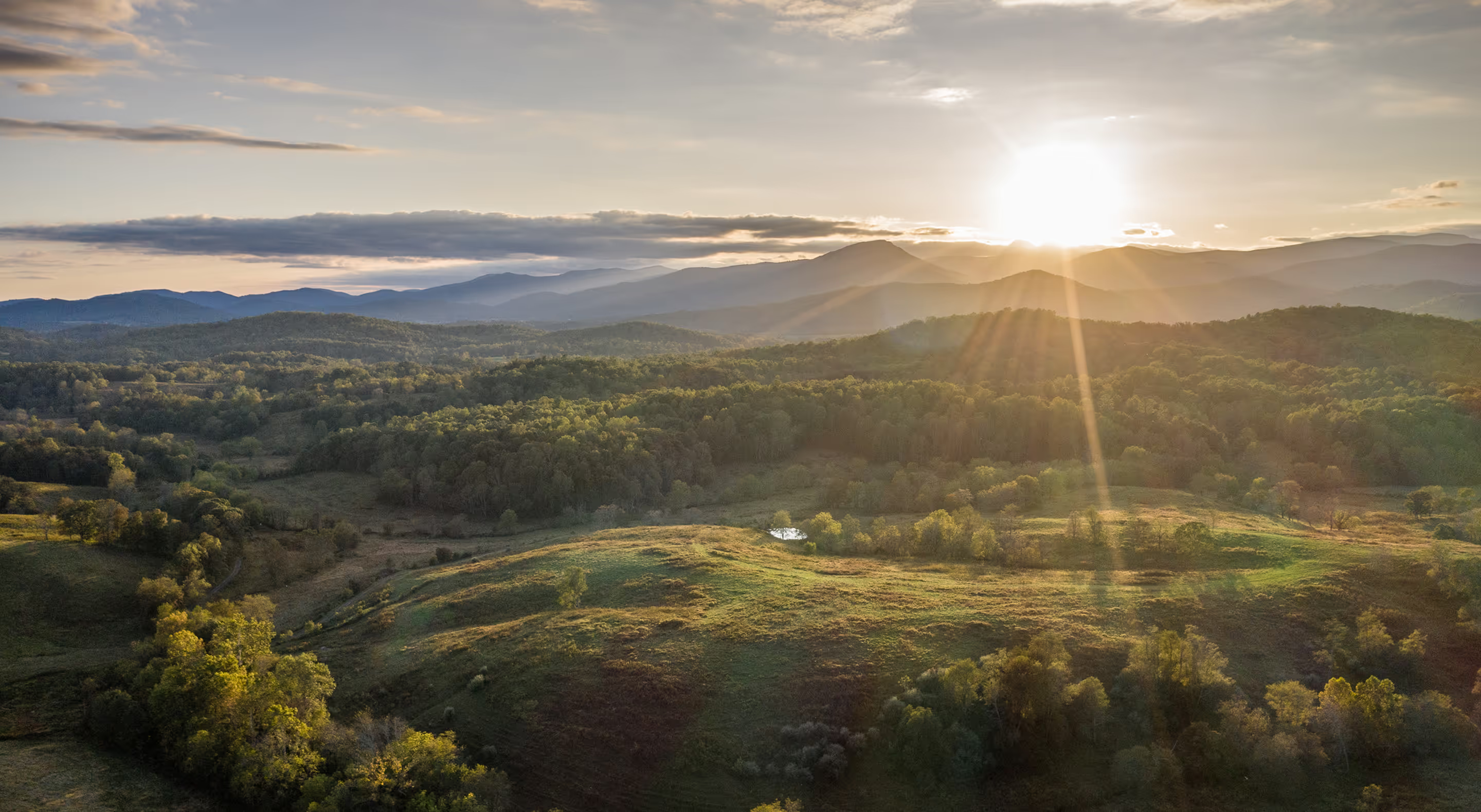
From Long-Term Hold to Living Laboratory:
Eldon's Evolution
Eldon Farms has deep roots in Rappahannock County. Originally assembled in the 1960s by the forward-thinking Lane family as a strategic investment in undervalued farmland, the property consolidated dozens of smaller farms.
In recent years, ownership transitioned to the Akre family, bringing a shift in vision. Seeing the mounting pressures of development changing the region, Chuck Akre asked a guiding question: "Wouldn't it be cool if in 50 years you looked out the window and it still looked the same way it does today?" This sparked Eldon's transformation into its current mission: a working landscape committed not just to preserving, but actively stewarding the land to demonstrate how ecological health and economic productivity can sustain Rappahannock's rural legacy for generations to come.
Signs of a Healthier, Balanced Landscape
We balance wildlife conservation with land management needs. We seek inspiration from natural disturbances to manage ecosystems using strategies that benefit both wildlife and farm operations.
Our monthly water tests demonstrate that seasonal stream protection, without costly permanent fencing, effectively maintains excellent water quality downstream from grazing areas.
Techniques like bale grazing are significantly reducing our winter feeding labor and fuel expenses while directly improving soil fertility in the pastures where hay was harvested.
Restoring native plants, even in small patches like our "Seed Islands" or transformed lawns at Clover Hill, quickly attracts more pollinators and birds, visibly boosting local biodiversity.
By relying on the existing seedbank in riparian areas and managing deer pressure, we're seeing native trees and shrubs return without expensive mass plantings.

Join Us in Cultivating a Healthier Rappahannock
Eldon Farms is more than just a property; it's a shared exploration. We invite you to:
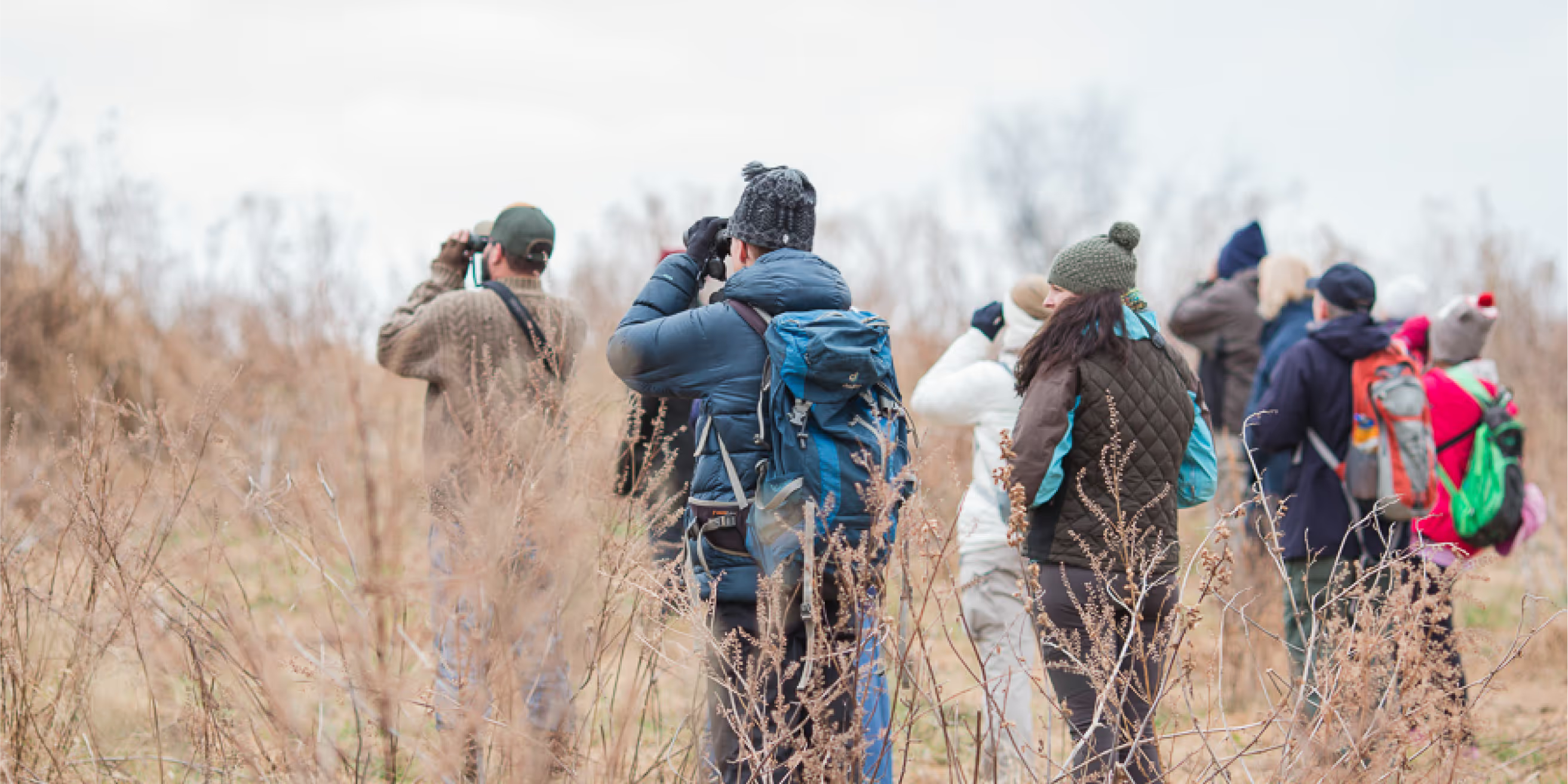
Subscribe & stay connected with sustainable stewardship
Get seasonal updates, practical stewardship tips, research insights, and invitations to workshops and events delivered to your inbox.
